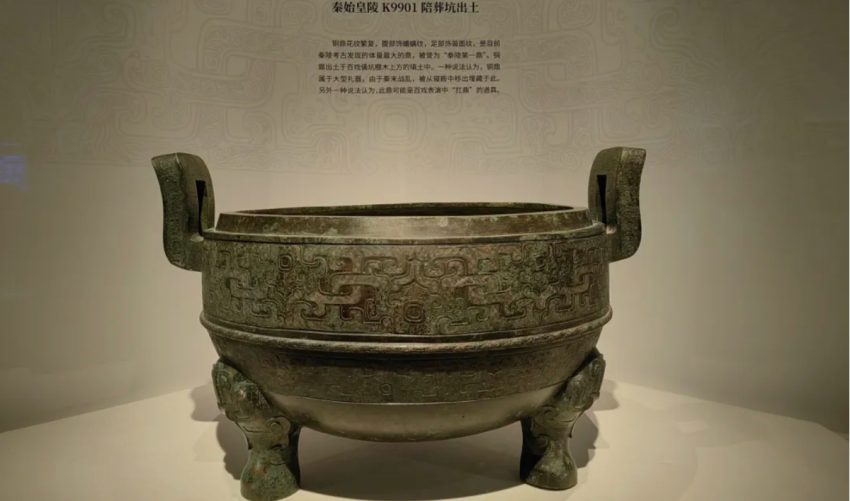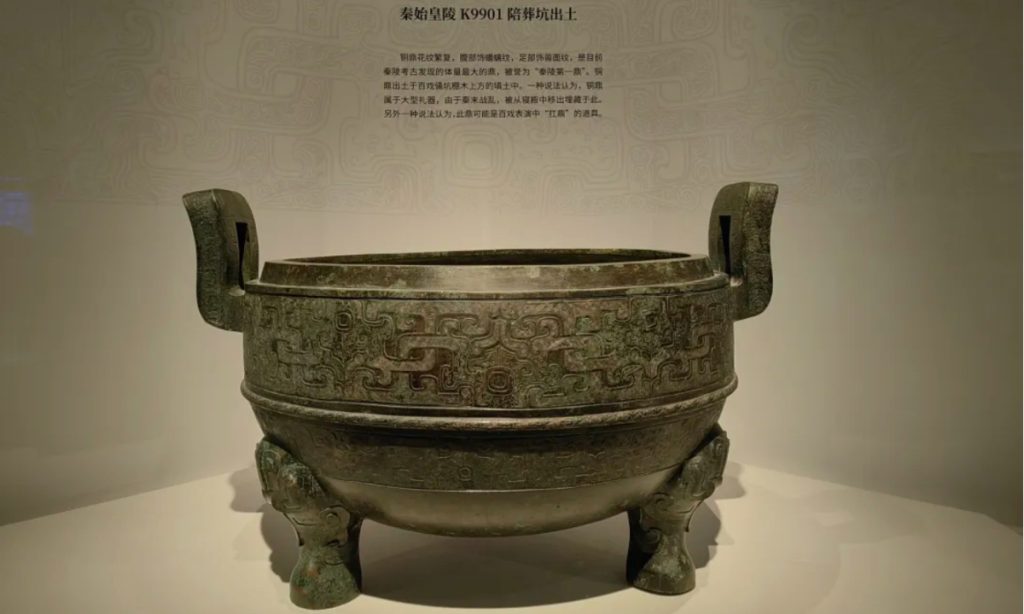
Qinshihuang Mausoleum archaeological discoveries make first collective public debut

As the year 2024 marks the 50th anniversary of the discovery of the Terracotta Warriors, an exhibition featuring archaeological discoveries at Emperor Qinshihuang's Mausoleum site, the tomb of the first emperor in Chinese history, opened on Sunday in Xi'an, Northwest China's Shaanxi Province, according to a report by state broadcaster CCTV.
This exhibition titled "Buried History and Mystery of China's First Emperor —— Archaeological Discoveries at the Mausoleum Complex of China's First Emperor" is the first comprehensive public display of artifacts from the site. As a supplement to the Terracotta Warriors pit site display, it features 230 items that highlight significant findings from the past five decades of excavation.
Among the exhibits, artifacts from the outer city gate, mausoleum structures, and a palace site associated with food management, as well as objects from one burial tomb of the mausoleum are all making their first appearance to the public.
The exhibition is organized into eight sections, including "Qinshihuang," "Palace Officials," "Underground Troops," "Imperial Parks," and "Court Entertainment."
Highlights include impressive armored figures, intricately designed stone armor, a bronze waterfowl that is a first-time discovery in Qin Dynasty (221BC-206BC) archaeology, and the largest Qin Dynasty bronze vessel discovered at the site to date, showcasing the grandeur and historical significance of the Qin Dynasty and its ruler.


